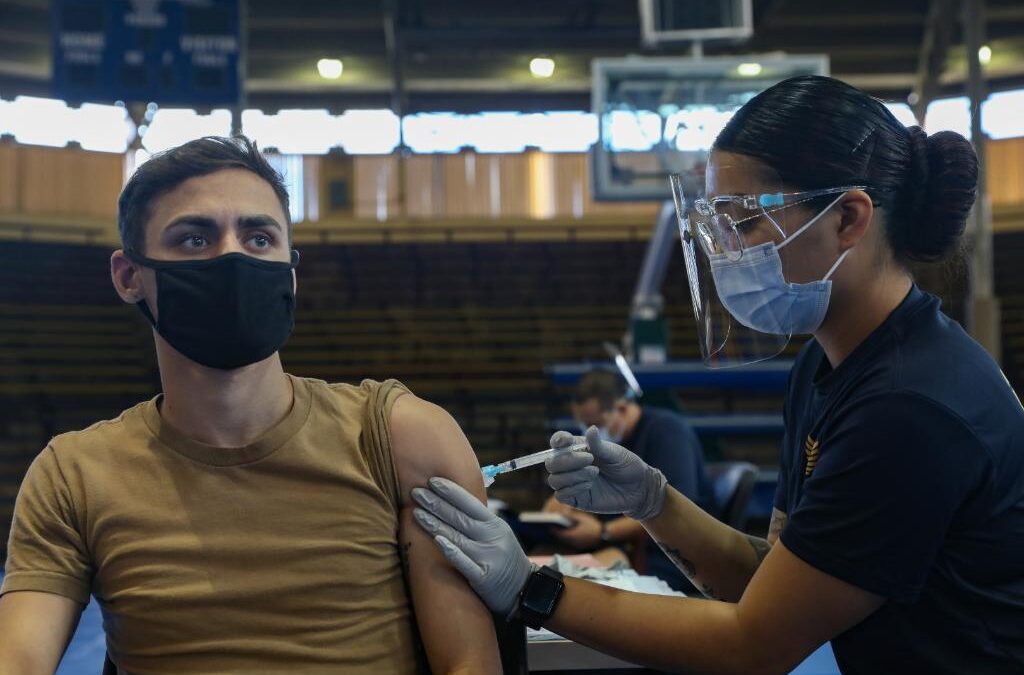They’re leading the change because they are the changemakers. Different branches of the military are undergoing a process by which the vaccine will be administered to personnel.
Sailors from the US Navy set an example by becoming some of the first people to get vaccinated against the novel coronavirus.
Chief of Naval Operations (CNO) Adm. Mike Gilday appreciated and encouraged the men and women serving under him. “I ask that every member of our Navy team strongly consider receiving the vaccine not only for yourself, but for your shipmates, your family, and your fellow citizens. By maximizing vaccination among our force and maintaining our mitigation measures of physical distancing, mask-wearing, and handwashing, we will begin the return to normal. I will receive the vaccine shortly after it is made available to senior DoD leadership,” he said.
Meanwhile, the vaccine is being administered in far away places such as Germany too. US Army Captain Skyler Brown became the first member in Europe and Africa to get the vaccine.
At a time when there is both a limited supply and some fear about the vaccine, members of the military have taken up the task of helping ease the public out of its panic about the pandemic.
Col. E. Lee Bryan, commander of U.S. Army Medical Department Activity Bavaria spoke about the initiative and said that more people will be included into the program over the next few months. He cautioned that the effects would take time to materialize.
Brig. Gen. Mark Thompson, Regional Health Command Europe commanding general said that the priority was to vaccinate healthcare personnel and first responders, alongside high-risk populations and highly-deployable personnel.
He also touched on the safety of the vaccine when he said: “The FDA only authorizes the use of a COVID-19 vaccine after careful and rigorous testing and trials. We are excited to be playing a role in providing a very safe and effective vaccine to our military community. This vaccine is a vital part of our way forward to protect our people, their families and the communities where we live and work.”
Hopefully, the tide is turning for the better.


Recent Comments